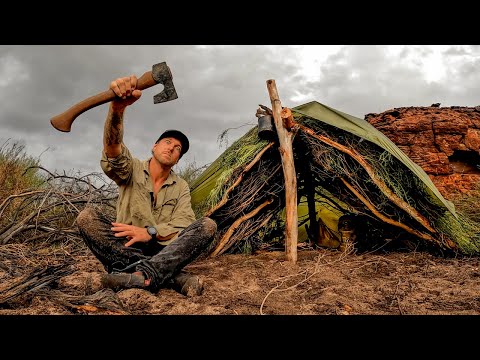According to the D& D 5e Players Handbook, a seminar 0–doesnt exist! Dungeon lords guide? Not in here either! And without a formal clarity for a session0, were leave behind a TON of opinions and even more questions, so as someone who lovesstarting new expeditions, Ive compiled all of the answers for you, and purified theminto the ultimate session 0 checklist, to share in this video! Let do this! Hi 🙂 Bob here, and welcome to Bob World Builder, where we learn how to have more entertaining playing D& D together! So smacked that subscribe button for weekly leader, gratuities, report and evaluations! Now before we get into this session 0 checklist, causes take a moment to talk about what this session is actually for! The objective of a hearing 0 is to get everyonein your group on the same page. Whether or not theyve represented D& D before, each musician has their own preconceived notions of what this new campaign will be like! The Actor: Im so excited to have a deeproleplaying experience with your best friend! The Explorer: Man, I cant wait to startexploring this new campaign train The Strategist: Heck yeah, this characterbuild is going to be able to wrestle a dragon by elevation 4! So this session gives you a chance to aligneveryones hopes for the campaign and player behavior.And the charm of it, is you can have a session0 check-in at any point in your safarus! By the end, youll have plans for your gamingschedule, a framework of rules for your table, and a organization for the adventure itself. I say strategies, fabric, organization becauseonce you start playing things ARE going to change! Every DM and player knows that schemes rarelywork out, but having this solid baseline obliges it way easier to deal with conversions as theycome along. And this actual checklist is totally freeto download on my Patreon through the link in the specific characteristics, so while youre overthere, consider joining the amazing backers in the Bob World Builder Patreon community! All Patrons get a brand-new monthly podcast, shoutin my next video– thank you Ben and RJ for connecting this week, and an adventure supplementwith printable NPC and item cards chosen by YOU every month– Im really proud of thismonths Urban Encounters supplement that precisely departed up today! And thank you to all my Patrons for makingall of this possible! Now the ultimate seminar 0 checklist startsoff by saying you should watch this video! Look at you, youre previously crushin it! Then scrutinize all sections before you discussit with your group, and later, revisit the roll to make adjustments as your campaignevolves.So this doc should be included in whateveryou use to keep session notes– you do make seminar indicates, right? Because based on your notes and regular feedbackfrom your players, you should be updating this list over period. Then the first real part is teambuilding! And I predict its not a goofy icebreakerthat will meet everyone painful, except your one friend who loves icebreakers forsome rationale; its three simple questions to give everyone a chance to introduce themselvesif necessary, and merely get excited about video games! Whats one thing you love about RPGs? This could be a favorite moment from a previouscampaign, why theyre elicited to play( strategy, storey, social interaction ), or anything else.Are you most excited by combat, explorationand questions, or roleplay? As a participate, whats one fortitude you bringto the group? If someone cant think of their own strengths, let others share a strength they see in that player. This last-place one really comes everyone thinkinglike a team, and you should severely take notes about their responses now, so theresa space on the checklist in order to be allowed to do so. The next section is where you attack scheduling! People are busy! So its great to figure out the logisticsright off the at-bat! How long can the group reasonably commit toplaying this campaign? Sure you may want it to last for years, butstart small-minded. 2-4 months is a good goal that wont scareaway your brand-new players who really have social lives and do nonsense besides “ve been thinking about” D& D…likethis video if you know what I imply! How often can everyone meet? Weekly is great, but twice per month is thereality for most groups of 4 or more players.How long should a session last? About three hours is normal. But if you gratify formerly a few months, maybe go forthose 6+ hour marathons! Where will you converge, or what virtual tabletopwill “youre using”? Whats the preferred day of the week andsession start time? And how long will you wait for that last personto show up? This might seem like overkill, but it keepsyour actors accountable, and not having a regularly scheduled game is the# 1 killerof D& D radicals. Eventually, under what provisions will you cancelyour tournament light, and what do you do with the character of an absent-minded participate? I included a few cases suggestions for how to handlethese points because different groups have different methods. And this idea heads right into the most importantsection, table expectations Some of these points are simple, some areserious, but they are all critical for maintaining a enjoyable game! If a participates beliefs arent beingmet, they wont be focused during the game, or worse theyll start realise excuses andstop showing up.Of direction, you cant please all the people, but if youre their legion, you should try! So is nutrient welcome at the counter? Alcohol? Smartphones? – these can be distracting, butthey are great tools for search material up! On that notation, how much go, if any, can bespent to check a rule? And how much musician insight overlaps withcharacter lore – ahh, metagaming, oh no … This isnt certainly a big deal in my experience, but beings tend to think it is.Does your group want to roleplay like thegang on Stranger Things or Critical Role? Is the general tone of video games striking orcomedic? And a reminder: all references get their timein the spotlight if they require it. But how much narrative command do the playershave? This could be limited to deciding the actionsof their person, or extended to on-the-fly shows of a scene to assist the DM whichI recommend in* this video* about deterring your actors attention! When can a situation be taken back, or retconned? Is player-vs-player action okay with yourgroup? And what other RPG pet peeves do the government has? This question could bring up some serioustopics, in which case, we climb right to the next detail: discuss the above rating of yourtypical sport: PG, PG-1 3, R? And foster your participates to privately sharewith you any topics they do not want to occur in the game. This whole section is about honor peoplesboundaries, but these are the topics that could ruin people knowledge with D& Dforever. So listen to them! Finally, what ARE the consequences for a playerwho becomes against these guidelines that the group agreed upon? For most adults and children, a simple disapprovinglook* gapes* is well placed to get them in line, but others will need to be spoken with privately.And if they frequently cross the line, theyDO NOT respect your group, and theyre merely not a good fit for this campaign. Now this next section is bound to be evenmore controversial: the campaign framework. This isnt something a lot of DMs dontinclude in their seminar 0 because frequently, theyve previously made all of these decisions–Youreheckin right, Bob! Its every DMs constitutional title tochoose or create a setting without absolutely zero input from their participates and then expectthem to be exactly completely happy with it because, well– ya concluded it for em !… Okay it soundsa little silly now that Im saying it, but perhaps its just the ridiculous accent I know, I know! I started DMing because I made a setting andwanted your best friend to play in it! But if you require a rich D& D know-how, orthat multi-year campaign, its best to create that naming together, or at least let yourplayers help and draw some decisions about the adventure.Whats the accessibility of supernatural, generallevel to new technologies, primary adventuring environments, the serious threats, main fib topics, linearor non-linear structure, starting character degree, and how will you ensure that the charactersare all connected to each other and the arrange? I favor when each reference has a pre-existingrelationship with at least one other character in the party, AND at least one NPC in theworld. This section is where it should click thatyour actors ought to know as much as possible about the put before they build a character.Yes, as soon as you invite your friends toa conference 0, theyll probably start working on hypothesis, and thats huge! Theyre evoked to play, but they shouldntdo it all on their own, or theyll be brought to an end with a character that doesnt fit well inthe party or the situate. So encourage them to come up with a few suggestions, and be adaptable, because they havent heard the final section yet: house rules! This part could go on forever, and I wantYOU to leave a comment below with your favorite house rule from your tournament! But here are some common machinists that groupsdo differently. Generating character statistics, levelingup, creating HP, alignment, hasten/ class restrictions– bc if I cant play Bardly McFly, Im out! Backgrounds, encumbrance, crits and fumbles, muse, initiative, starting gold, health regeneration, attribute death, and resurgence. Now, a lot of groups like to play at the endof a seminar 0. And it clears ability, youre all hyped upabout this new campaign, and you want to dive right in! But I say you shouldnt, sort of.If you went into it with a group of peopleyou already knew, and a pre-written setting and safarus that everyone was already awareof, go for it. But if youre still getting to know everyone, or youre flowing homebrew, or you need to do big changes to the campaign basedon your discussions, wait. Let your actors hold on to that excitementand invest more epoch on their person backstories, while you watch* this video* about sessionprep to create the ultimate time 1! So what did I forget to put in this checklist? Let me know, and “ve been told” what other topicsyou so wishes videos about, and affiliate Patreon like Ben and RJ did this week, if you wantto vote on future videos and get so much more cool stuff. Thank you for watching, and retain build !: D.

FAQ
What should a session 0 include?
Session 0 Checklist
– Announce the color. During your session 0, you want to explain what kind of game you will be playing.
– Imagine your world.
– Help players create their own characters.
– Explain security tools.
– Building the world together.
What should I go over in session zero?
Introduction to the game and home.
– At the beginning of your Zero session, a good first step is to cover the system and rules of the game. Let players know which books they will use and what they can use. And any homebrew or other rules you or the group might want to add are also good talking points for this zero step session.
What should I bring to a DND session?
10 essential items a player needs for their first Dungeons & Dragons game
– Guide for 10 players.
– 9 character sheets.
– 8 notebooks and stationery.
– 7 dice.
– 6 character ideas.
– 5 open minded.
– 4 backup characters.
– 3 D&D Beyond accounts (website and app)
What is the hardest DND 5e campaign?
Curse of Strahd is one of the more difficult campaigns of 5e. It takes place in the dark and terrifying setting of Ravenloft and sees players as underdogs against the mighty Strahd.







